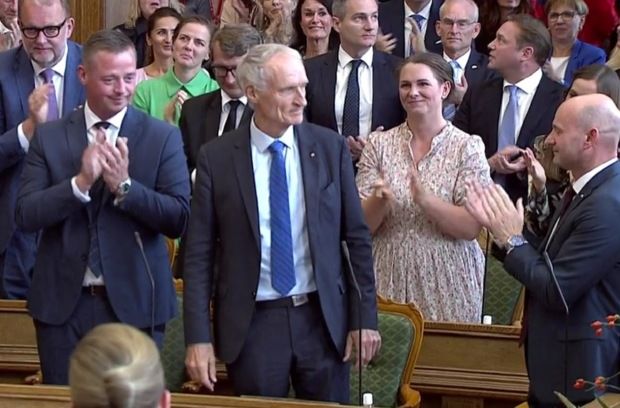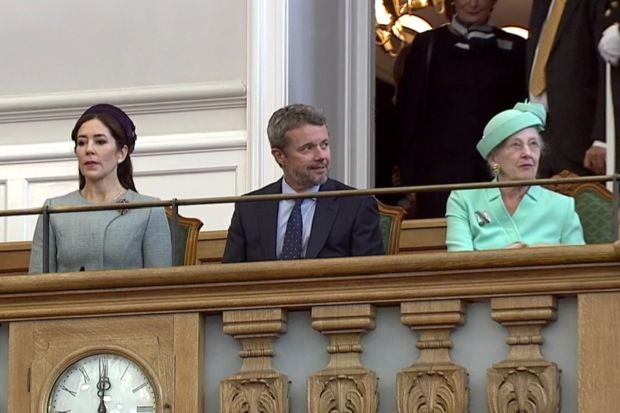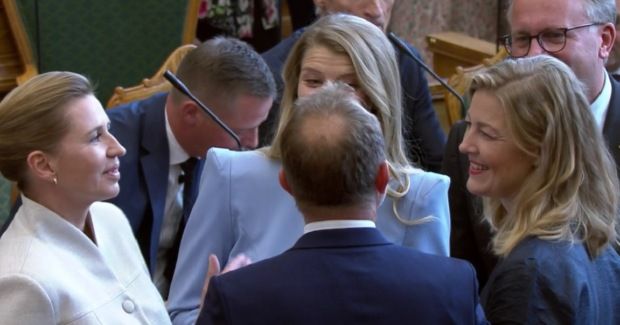Being the first Tuesday in October, Denmark’s politicians and Royals were gathered at Christiansborg today to open Parliament as tradition dictates.
And the big question was whether PM Mette Frederiksen would call for a new General Election following government ally Radikale’s no-confidence ultimatum in July.
Well, she didn’t. At least not today, although she gave several indications that she would in the very near future … likely this week.
War in Europe
She opened her speech by bidding farewell to three giants of Danish politics – Bertel Haarder, Marianne Jelved and Henrik Dam Kristensen – who have all announced that they will step down from politics.
Frederiksen then spoke about the new insecure situation that Denmark and the world faces with the War in Ukraine, rising inflation and energy crisis.
“The world changed forever when Putin sent Russian troops into Ukraine on February 24. But we are stand stronger. Sweden and Finland have made the historic decision to join NATO and a majority of Danes voted in June to abolish the defence opt-out,” said Frederiksen.
“We need to assume a more offensive role internationally. Or others will.”

Standing together
Frederiksen went on to contend that the pandemic, war in Europe and energy crisis further proves that it is important for political parties and the public in Denmark to stand together.
To this end, Denmark needs to ease legislation relating to foreign workers and embrace reforms that increase employment – particularly given the large group of the population that is set to retire soon.
Some of those reforms will pertain to education as Frederiksen argued that universities are still stuck in a time where the primary goal was to research or specialise.
She questioned whether everyone in the country needed to spend five years going to university.
No resting on laurels
After that, Frederiksen then praised Denmark for assuming a leading role in the global climate change battle and green transition.
“In the future, we won’t only provide green power to all of Denmark, but to half of Europe. And we can be proud of that,” she said.
But more needs to be done on that front, said the PM, if Denmark is to protect its clean drinking water. A CO2 tax for the agriculture sector, a green domestic aviation sector and production of much more sustainable energy will help the climate, reduce prices and rid dependency on Putin.

Co-operation paramount
Frederiksen then took on Denmark’s “failed immigration policy”, contending that there are still people who come to the country who don’t “share our values.”
That requires treading new paths, such as moving asylum processing outside of Europe’s borders and cracking down harder on crime.
And with the speech winding down and a prospective new government on the horizon, Frederiksen once again underscored the importance of the politicians working together during these tumultuous times.
She thanked the leaders of her Red Bloc allies for their co-operation over the past three years.
“Nine of ten political agreements in this election period have been agreed to across the political middle,” she said.
Read the PM’s entire speech here (in Danish).

Taking radical steps
Meanwhile, Radikale seems to have shot itself in the foot – the party has plummeted in the polls since leader Sophie Carsten Nielsen made the no-confidence ultimatum this summer.
Indeed, with several new Blue Bloc parties being formed, the maneuver could ultimately backfire and lead to a new Blue Bloc government.
Since the last General Election the Blue Bloc has been strengthened by the emergence of two new parties Moderaterne and Danmarksdemokraterne with notable leadership in Lars Løkke Rasmussen and Inger Støjberg.














